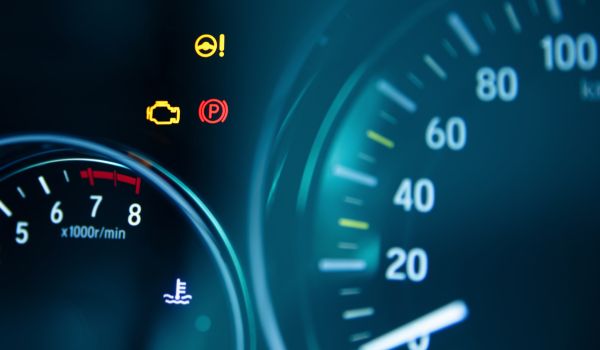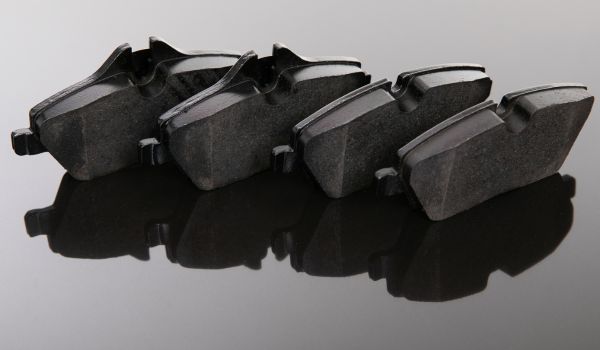It is very dangerous to drive with your brake lights staying on because people behind you won’t be able to tell the difference between when you’re slowing down and when you’re driving regularly. We highly advise that you fix this issue right away. But, first of all you should know about the causes for brake lights staying on.
Electrical problems, fluid leaks, broken switches, old brake pads, damaged brake rotors, air in the lines, ABS failure, and a low battery charge are some of the things that can keep the brake lights on. Usually, swapping out the broken party fixes the problem, but you might need the help of a professional electrician to get it fixed.
This blog post will talk about 8 reasons why your brake lights staying on and how to fix them.
Mechanical causes for Brake Lights Staying On
Electrical Problems
The brake lights staying on happens if there is a loose wire or a bad link in the wiring. Check all the connections and repair any wires that are broken or frayed.
Fluid Leak
If there is a leak in the hydraulic brake system, the amount of the brake fluid can drop, which keeps the brake lights staying on. Look for leaks in all of the hoses and lines and fix or replace them as needed.
Bad Switch
The stop lights can stay on all the time if the switch that turns them on fails. A voltmeter should be used to check the switch for damage, and if it is, it should be replaced.
Worn Brake Pads
The brake lights may stay on if the brake pads are worn out. Check the pads and get new ones if they are worn through more than half way.
Bad Brake Rotors
The brake lights stay on if the brake rotors are Faulty or bent. Check the rotors for damage and repair them if you find any.
Air in the Lines
If there is air in the hydraulic brake lines, the brake lights will stay on because the brakes won’t work properly. Bleed the brakes to get rid of any air that’s in the lines.
ABS Not Working
It is possible for the brake lights to stay on if the anti-lock braking system (ABS) is not working right. Check to see if the ABS system is faulty. Fix it or get a new one.
Low Battery
The stop lights may also stay on if the battery is low. It is best to use a tester to check the battery. If it needs to be charged or replaced, do so.
How to Fix Problems with Electricity?
- Check all the connections and repair any wires .
- A voltmeter should be used to check the switch for damage, and if it is, it should be replaced.
- Make the needed changes or fixes.
- Check the pads and get new ones.
- Check the rotors for damage and repair them if you find any.
- Bleed the brakes to get rid of any air that’s in the lines.
- Check to see if the ABS system is broken, and if it is, fix it or get a new one.
- It is best to use a tester to check the battery. If it needs to be charged or replaced, do so.
How to Fix Leaks in Fluid
- Look for leaks in all of the hoses and lines and fix or replace them as needed.
- If there is a leak in the hydraulic brake system, the amount of brake fluid can drop, which keeps the brake lights on.
- Find the leak first, then fix it by tightening any connections that aren’t secure. Changing any wires that are broken or frayed, or taking care of any other problems.
- After fixing the leak, bleed the brakes to get rid of any air in the lines and get the brakes working right again.
How to Change a Bad Switch
- The stop lights can stay on all the time if the switch that turns them on breaks.
- A voltmeter should be used to check the switch for damage, and if it is, it should be replaced.
- To change the switch, you must first find it and then unhook the wires that connect to it.
- With a tool, take out the old switch and put in the new one.
- Connect the wires to the new switch again, and then test it to make sure it works right.
Tips for Getting New Brake Pads
- The brake lights may stay on if the brake pads are worn down. Check the pads and get new ones if they are worn through more than half way.
- To change the brake pads, you must first find them and then use a screwdriver to pry off the old ones.
- Put the new pads in their place and make sure they are in the right place.
- Before you drive the car again, make sure the brakes are working properly by testing them.
How to Change Brake Rotors That Are Broken
- The brake lights may also stay on if the brake pads are broken or warped. Check the rotors for damage and repair them if you find any.
- To change the brake rotors, you must first find them and then loosen the bolts that hold the old ones in place.
- Put the new rotors in their place and make sure they are in the right place.
- Before you drive the car again, make sure the brakes are working properly by testing them.
How to Get Air Out of Brake Lines
- If there is air in the hydraulic brake lines, the brake lights will stay on because the brakes won’t work right.
- First, find the bleeder screws on the brakes or wheel cylinders. This will let you drain the lines of air.
- Loosen the bleeder screws and then pump the brakes until the lines are completely empty of air.
- Once the bleeder screws are tightened. Test the brakes to make sure they work right before driving the car again.
How to Tell If Your ABS Is Failing
What does the ABS light on your car mean? The anti-lock braking system is having trouble. A lot of things can make this happen, so it’s important to figure out what’s wrong as soon as possible.
You can tell if your ABS is failing in a few different ways. The best way will depend on the signs you are having.
ABS light
If the ABS light is on but the brakes are working fine, there is probably a problem with the sensor.
Check the fuses to make sure they are all good before you do anything else. Since the fuse is blown, it needs to be changed. Take the car to a mechanic or a friend with knowledge who can help you if you don’t know how to do this.
If all of the fuses are still good, the next thing you should do is check the amount of the brake fluid. It’s possible that the ABS light is on because the fluid amount is low. It might help to add more fluid to the tank and test it again.
Sensors
Another possibility is that one of the sensors is broken. If the ABS system is still giving you trouble. A problem with the front sensor is most often to blame, but the problem could also be with the back sensor.
An ohmmeter is the best tool for testing the sensors. After taking the sensor off, you should check the resistance between the two lines. It’s likely that the sensor is broken and needs to be changed if the resistance is high.
Once you’ve checked the sensors and are still having issues. It’s likely that the ABS pump or driver is broken. It will be harder to test these parts, and you will need special tools to do it.
If you think these parts might be broken. You should take the car to a mechanic or a shop so they can figure out what’s wrong.
You can test your car battery at home in a few easy ways. An easy way to check the health of your battery is with a tester or multimeter.
Steps to Check the Health of your Battery
First, shut off the engine and open the hood. Find where the battery’s positive and negative connections are.
Next, check the voltage across the leads with the voltmeter. It should say between 12.6 and 12.8 volts. If it’s less than that, it means that your battery might not have enough power.
A multimeter set to ohms mode can use to test the battery if you don’t have a voltmeter. Find a reading of about 0.5 to 1 ohms when you touch the leads to the positive and negative ends.
If the number on the voltmeter or multimeter is fine, you can use a portable jump starter or start the car to check the battery’s cranking power. If the engine won’t start or starts slowly, the battery may be weak and needs to be changed.
You can test your car battery at home in a number of easy ways. A voltmeter or tester makes it easy to check your battery’s health and figure out what’s wrong.
How to Get a New Battery in Case of Brake Lights Staying On?
- The stop lights may also stay on if the battery is low. It is best to use a tester to check the battery. If it needs to be charged or replaced, do so.
- To change the battery, you must first find it and then unhook the negative end from it.
- Take the old battery out of its slot and put the new one in its place.
- Connect the negative end of the new battery to the old one again, and make sure it works by testing it.
FAQs
How long do batteries last in cars?
One of the most important parts of a car is its battery. They give the engine and electrical circuits the power they need to start. How long do they last, though?
About three to five years is how long the normal car battery lasts. This can change, though, based on things like the weather, how you drive, and how well you take care of your car.
Batteries in cars tend to not last as long when it’s cold outside because the chemicals inside them react differently. But when it’s hot, they can get too hot and break down more quickly.
If you drive a lot, your car battery may not last as long. Because it doesn’t have time to fully charge, short drives or traffic that comes and goes can shorten its life.
If you drive a lot of miles, though, your battery will last longer because it will have more time to charge.
Finally, the best way to make your car battery last longer is to take care of it properly. Always keep it clean and free of rust, and don’t forget to check the fluid amounts often. You can get the most out of your car battery by following these easy steps.
How Long Do Pads Last?
One set of brake pads should last between 30,000 and 70,000 miles on average. This can change, though, based on the type of car you drive, how you drive, and how good the brake pads are.
Say you drive a lot of city streets or in traffic that stops and starts a lot, your brake pads will wear out faster than if you mostly drove on roads. You will also need new brake pads more quickly if you have a big foot or use your brakes a lot.
Last but not least, how long the brake pads last depends a lot on how good they are. More expensive pads tend to last longer because they are of better materials and don’t wear out as fast.
For how long do brake pads last before brake lights staying on?
There are a lot of factors that affect the answer to this question, such as driving habits, geography, and weather. But brake pads wear out faster than brake disks most of the time.
They need to last between 30,000 and 70,000 miles. Of course, this is just a guess, and your range may be different.
Many stops and starts or driving in hilly or rocky areas will likely wear out your brake rotors faster than if you mostly drive on the highway.
In the same way, if you live somewhere that gets a lot of rain or snow, your brakes will have to work harder and wear out faster.
There are some things you can do, though, that will help your brake rotors last longer. Make sure your brakes are regularly checked, and get new brake pads as soon as they begin to wear out.
Also, try to avoid stopping quickly as much as possible. If you need to stop quickly, don’t keep your foot on the brake pedal for too long. This can make the brakes seize up and bend.
Here are some easy things you can do to help your brake rotors last as long as possible. Of course, they will need to be changed at some point. However, if you take good care of them, they can last for a very long time.
What are the causes for brake lights staying on?
1)broken break routers
2) Air in brake lines
3)ABS failures
4)Fluid leakages in brakes
5)Electrical problems
These are the things responsible for brake lights staying on.
How long does the brake switch last?
Most stop switches last as long as the car does. Before you start having problems, you should have a skilled mechanic check out your brake switch as soon as you think it might be broken.
Brake lights staying on – Conclusion
The stop lights might stay on for a few different reasons, but an electrical problem is the most likely one. After some research, you should be able to figure out what the issue is and how to fix it.
If the problem persists, and brake lights staying on, you should take the car to a mechanic or shop to get a more accurate diagnosis.
If your brake lights stay on, it could be because of a bad battery or a leak in the fluid. Check all the possible reasons why your brake lights aren’t working and fix or replace them as needed to get them working again.







